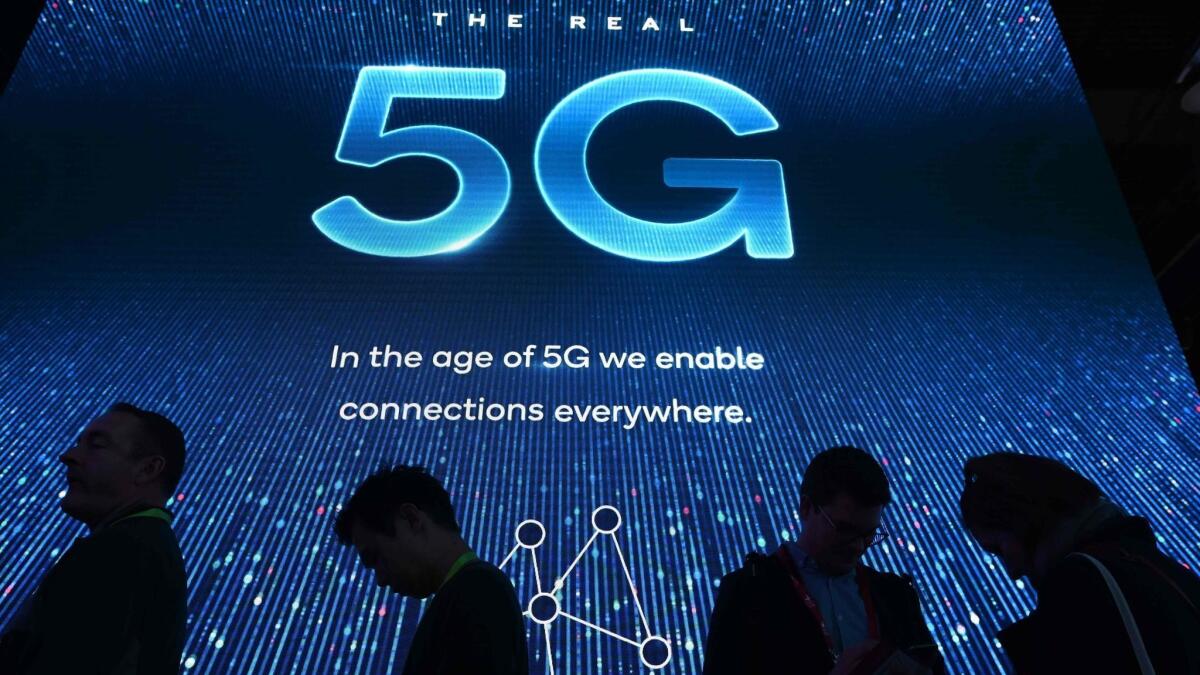Qualcomm violated antitrust law, federal judge rules

- Share via
A federal judge has ruled that Qualcomm Inc. violated antitrust laws by using its dominant position in smartphone chips to extract excessive patent license fees for its cellular inventions, striking a major blow to the San Diego company’s business model.
After four months of deliberations, U.S. District Judge Lucy Koh found against Qualcomm in an antitrust lawsuit brought two years ago by the U.S. Federal Trade Commission. The FTC argued that Qualcomm used its dominance in 3G and 4G smartphone processors — it supplies 50% of the global market — to force phone makers to pay too much to license its standard essential patents.
The 233-page decision requires Qualcomm to renegotiate patent agreements and offer standard essential patent licenses to rival chipmakers, which opens the door to component-level patent licensing.
Today, Qualcomm licenses its cellular patents based on a percentage of the price of smartphones, subject to caps. Component-level licensing could significantly reduce Qualcomm’s profits from patent fees, which fund much of its research-and-development work in advanced wireless technologies.
Qualcomm’s shares dropped 10.9% to $69.31 on Wednesday.
“This is a gut punch to Qualcomm and could have a major ripple impact across the smartphone industry,” said Daniel Ives, managing director at Wedbush Securities. “It could not come at a worse time for Qualcomm going into 5G and its pricing power on chips.”
Qualcomm said it would immediately seek a stay while it appeals Koh’s ruling to the U.S. 9th Circuit Court of Appeals.
“We strongly disagree with the judge’s conclusions, her interpretation of the facts and her application of the law,” Don Rosenberg, Qualcomm’s general counsel, said in a statement.
Koh’s ruling comes a month after Qualcomm settled a separate lawsuit with Apple, which involved antitrust allegations similar to the FTC’s claims. It also was issued amid a flare-up in the U.S. trade war with China and a decision last week by the Trump administration to require Qualcomm and other suppliers of Huawei to get government permission to export components to the Chinese telecom.
Apple executives were top witnesses in the FTC’s case. The settlement, which included a six-year patent license agreement and multiyear chip supply deal between the two companies, had been seen by investors as a sign that the FTC case against Qualcomm was weak.
“We do believe that, post the Apple settlement, that some investors might have hoped that the judge would have softened her views in the wake of the Apple capitulation,” said Bernstein Research analyst Stacy Rasgon. “Apparently not.”
The FTC’s decision to bring an antitrust lawsuit against Qualcomm came in the waning days of the Obama administration and was controversial, with then-Commissioner Maureen Ohlhausen writing in dissent that the lawsuit rested on a flawed legal theory.
The U.S. Justice Department’s antitrust division also sought a hearing before any sanctions were issued against Qualcomm, arguing that harsh requirements could hurt U.S. competitiveness in upcoming 5G wireless technologies. Koh denied the request as unnecessary.
In a January trial in federal court in San Jose, Qualcomm lawyers argued that the FTC failed to prove that Qualcomm’s business practices harmed competition and consumers in a thriving smartphone market.
Koh ruled that Qualcomm must negotiate patent licenses with customers free of the threat of a lack of access to its chips, and it must make exhaustive patent licenses available to rival modem chip suppliers, such as Samsung Electronics Co., MediaTek Inc. and Huawei Technologies Co. She also imposed seven years of monitoring.
“They will appeal it, so there will be no near-term impact as this continues to run through the court system,” Ives said. “But what it does is Qualcomm goes from a position of strength to a few steps down with this ruling.”
Huawei is not a major customer of Qualcomm. Still, because Qualcomm is the U.S. leader in 5G technologies, Ives believes Koh’s decision could weaken the Trump administration’s efforts to curb China’s Huawei from becoming the dominant player in the 5G race globally.
“Qualcomm is dealt a blow with this FTC ruling as the main [U.S.] 5G arms dealer,” he said. “Huawei’s leverage is strengthened on 5G.”





